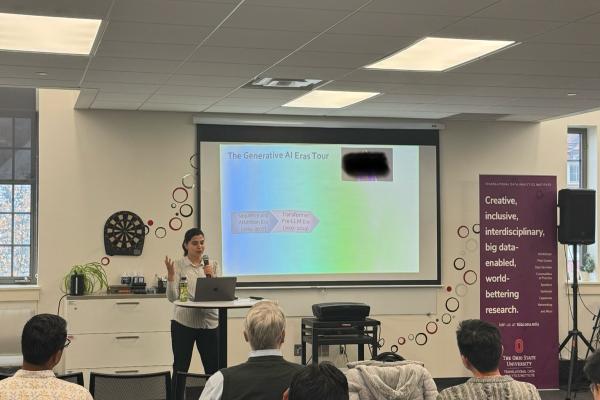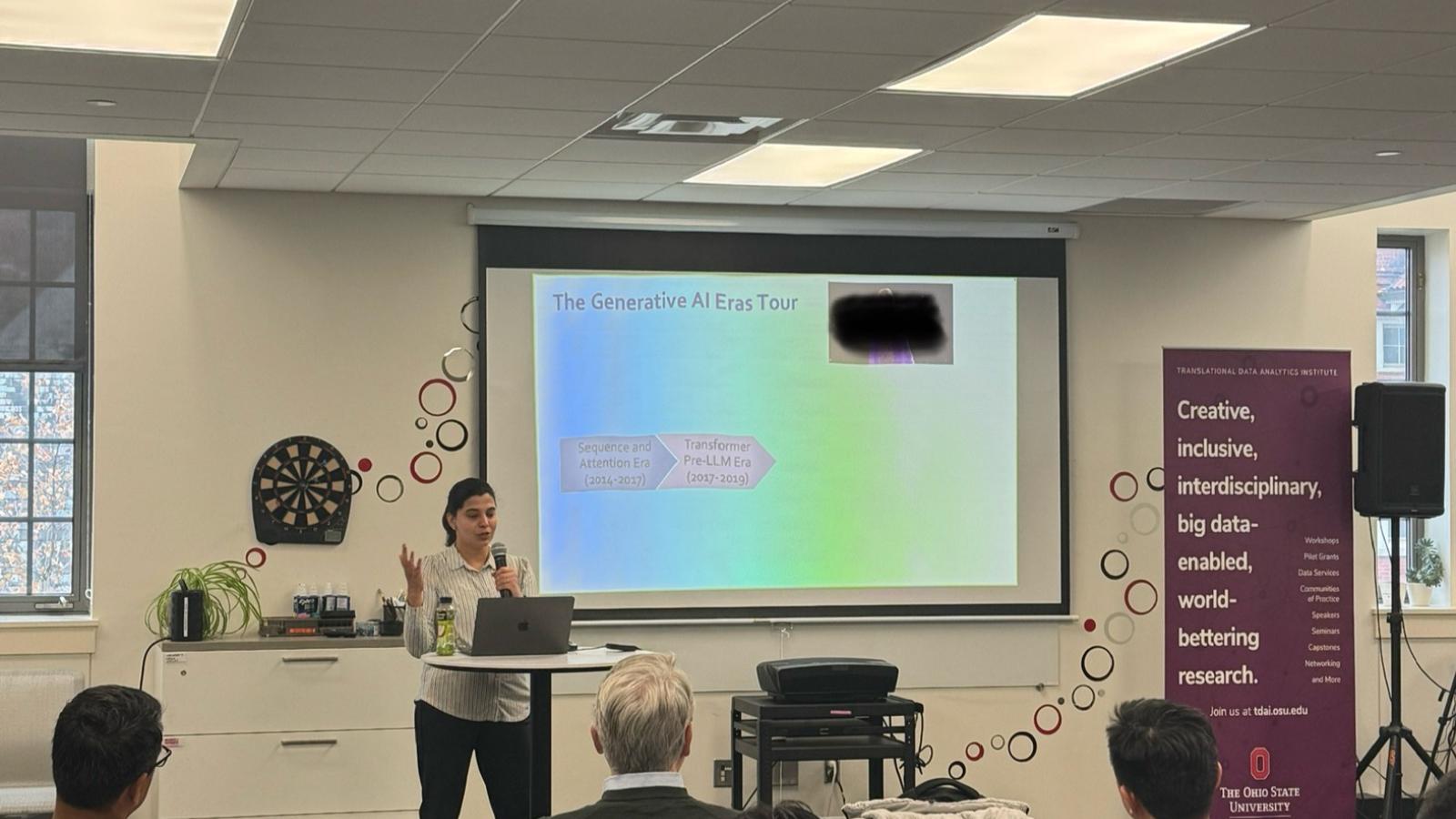TDAI Speaker Series Highlights Advances in Federated Learning for Large Language Models

As part of The Geometrization of AI theme, the Translational Data Analytics Institute welcomed Dr. Gauri Joshi of Carnegie Mellon University to Pomerene Hall on Friday, November 21, 2025, for a research seminar focused on new frontiers in federated learning and large language models (LLMs). Faculty, students, and campus partners gathered over coffee and light breakfast to explore emerging ideas shaping privacy-preserving, distributed AI systems.
Dr. Joshi’s talk examined a critical challenge in today’s AI landscape: although edge devices collectively generate massive volumes of valuable data, current LLMs still rely heavily on centralized, cloud-based training. Federated learning (FL) offers a promising alternative by allowing models to be fine-tuned directly on-device—without transferring sensitive information.
She introduced adaptive multi-head LoRA, a technique that increases the flexibility of low-rank adaptation methods while keeping them computationally efficient enough for edge environments. This approach reparameterizes weight updates using multiple LoRA “heads,” allowing for more expressive fine-tuning across highly variable client data.
In the second part of the seminar, Dr. Joshi explored model merging as another path for leveraging locally trained models without intensive communication rounds. By merging client-side models through one-shot transfer to a central server, researchers can capture the diversity of distributed datasets while maintaining strict privacy boundaries.
Together, these methods reveal new possibilities for mobilizing the untapped potential of edge data—advancing AI systems that are more adaptable, secure, and representative of real-world contexts.
Dr. Joshi is an associate professor in Carnegie Mellon University’s Electrical and Computer Engineering department and a leading researcher in distributed and federated learning. Her work has earned numerous recognitions, including the MIT Technology Review Innovators Under 35 Award, an ONR Young Investigator Award, an NSF CAREER Award, and multiple best paper honors.
This seminar was presented as part of TDAI’s yearlong exploration of geometric perspectives in AI and their impact on next-generation machine learning systems.

